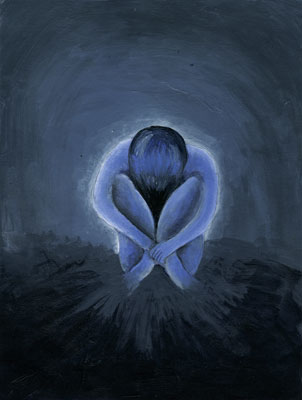All Nonfiction
- Bullying
- Books
- Academic
- Author Interviews
- Celebrity interviews
- College Articles
- College Essays
- Educator of the Year
- Heroes
- Interviews
- Memoir
- Personal Experience
- Sports
- Travel & Culture
All Opinions
- Bullying
- Current Events / Politics
- Discrimination
- Drugs / Alcohol / Smoking
- Entertainment / Celebrities
- Environment
- Love / Relationships
- Movies / Music / TV
- Pop Culture / Trends
- School / College
- Social Issues / Civics
- Spirituality / Religion
- Sports / Hobbies
All Hot Topics
- Bullying
- Community Service
- Environment
- Health
- Letters to the Editor
- Pride & Prejudice
- What Matters
- Back
Summer Guide
- Program Links
- Program Reviews
- Back
College Guide
- College Links
- College Reviews
- College Essays
- College Articles
- Back
Child Abuse
“Mistreatment of a child by a parent or guardian, including neglect, beating, and sexual molestation.”
This is the everyday, common dictionary definition of child abuse. This is what most people think when they hear the words “child abuse” right? Well, this definition that everybody thinks of, is wrong. Many things stated above are incorrect.
For starters, children can be abused by a parent, guardian, sibling, stranger, or anybody they know; not just a parent. Also, child abuse can include physical abuse, sexual abuse, emotional abuse, physical neglect, and emotional neglect. In the definition, it classifies physical abuse as, “beating.” However, physical abuse can include many things such as, beating, biting, shaking, choking, hitting, burning, etc. This is much more than just simply, “beating.” Part of child abuse can also be classified as sexual abuse which is not only “sexual molestation” but can include anything that is a, “sexual act, sexually motivated [behavior] involving children, or sexual exploitation of children." Another type of child abuse is classified as psychological. This can involve things such as terrorizing, exploiting, and isolating. The last type of child abuse is neglect. Neglect is the, “failure to provide for the child’s basic needs –deprivation of adequate food, clothing, shelter, supervision, or medical care."
Going on, there is a difference between child abuse and punishment. Sure, for some parents, spanking is a form of punishment, but if it is too common or at the wrong time, it crosses the line and may become a form of child abuse. If the person is hitting the child as a form of punishment, it should not give them bruises or visible marks and it should not be a common form of punishment. When the “punishment” starts to happen very often, leave marks, or even put the child in danger, it can be classified as abuse. Many people don’t believe in hitting their child as a way to punish them, however for those that do, they need to be aware of what they are doing and not let it get out of hand, or simply not do it at all. When the child is put at risk of getting seriously harmed or emotionally damaged, the parent needs to stop using that as a consequence and find an alternative because when it reaches that point, it is no longer punishment.
Furthermore, these types of child abuse not only affect the child when it happens, but have long term effects as well. People who experience any form of child abuse are more likely to have depression, anxiety, poor self-esteem, aggressive behavior, suicidal thoughts or attempts, eating disorders, illicit drug use, alcohol abuse, post-traumatic stress, disassociation, sexual difficulties, self-harm, or personality disorders. Also, by experiencing child abuse, the children have a much higher chance of becoming a juvenile or criminal when they get older; 36.7% of women in prison were abused as a child, as well as 14.4% of men. When a child is abused, not only may they be physically scarred, but emotionally scarred as well. These children are more likely to have trust issues and relationship issues that could affect them the rest of their lives; it’s not easy for them to move past the traumatic experiences they have experienced.
“Any recent act or failure to act on the part of a parent or caretaker that results in death, serious physical or emotional harm, sexual abuse, or exploitation.”
This is the proper way to define child abuse. It is not done only by a parent, and it is not only physical abuse. There are many different layers to child abuse and each case is different; however most people need to realize that it is a bigger issue and is more common than they would think. Child abuse is not something that can easily be fixed. The case needs to be reported first and then even if the child is taken out of the situation in which it happens, they still need to get over the barriers that were created by it. This issue affects children of all ages for long periods of time, and some their whole lives.
If you are or know anybody that may be in a situation where child abuse is present, call one of the numbers below to get help;
American Professional Society on the Abuse of Children: (843)-704-2905
Childhelp USA: (480)-922-8212
International Society for Prevention of Child Abuse and Neglect: (630)-876-6913
National Center for Prosecution of Child Abuse: (703)-549-4253
National Council on Child Abuse and Family Violence: (202)-429-6695
Prevent Child Abuse America: (312)-663-3520
PROTECT: National Association to Protect Children: (818)-350-9350

Similar Articles
JOIN THE DISCUSSION
This article has 0 comments.
